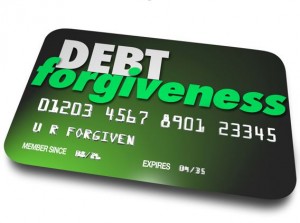 Nobody wants to file bankruptcy unless it is their last option. In my office, I have every client sign a paper indicating that they believe that bankruptcy is their last option.
Nobody wants to file bankruptcy unless it is their last option. In my office, I have every client sign a paper indicating that they believe that bankruptcy is their last option.
Whenever you look at your options, be sure you look at all of your options, including ones you don’t think you’d like, then pick the one that’s best for you. Be sure to “rise above the treeline” to see where each road goes. If can’t see yourself going all the way down a certain road, then should you even take one step in that direction?
Here is a common alternative to filing bankruptcy:
Enter Into A Debt Settlement Plan.
A Debt Settlement Plan is one where you make a monthly payment to a debt settlement company, but NO monthly payments are made to creditors. Instead, the debt settlement company holds onto the money until it receives several thousand dollars from you. After that point, the debt settlement company will have enough money on hand, and will contact your creditors to negotiate a settlement in the range of 30%-60% less than what is owed.
Some credit card companies may agree to that, but they want ALL the payment at once. Most of the people that I see that have tried a Debt Settlement Plan have come to me for help because they have just been sued for a credit card debt that has not been paid in months.
If the debt settlement company is actually successful in settling a debt of yours for a 40% discount, then a Form 1099 is going to be filed with the IRS to inform the IRS that you have been relieved of the remaining 40-cents-on-the-dollar of the settled debt. Relief from debt outside of bankruptcy is treated just like income. So, don’t use all your cash settling your debt, or else you won’t have enough money to pay the IRS.
The best example of this is the guy who came into my office to say that he was so proud that he was able to settle his $60,000 of credit card debt for the $20,000 he had in savings. He came into my office when he received $40,000 in Form 1099s that were sent to the IRS by the credit card companies that settled for less. I told him that he didn’t have a debt problem, but he had a tax problem with the IRS. He wasn’t happy about the IRS problem, and he became depressed when I showed him how he could have taken care of his debt in a bankruptcy case, while at the same time holding onto most of his cash. Doing it his way, he had no cash left and he owed the IRS $8,000 on the $40,000 that was written off by the credit card companies in settlement of his debts. Owing the IRS $8,000 is worse than owing credit card companies $40,000 or $60,000, because the IRS can take your stuff and garnish your paycheck.
The idea of debt settlement attract lots of people that are having trouble paying bills, because they make people think that
1) “Hey, I’m getting out of debt without bankruptcy!” and
2) “I’m getting a discount!”
Those are two powerful buttons to push for someone having bill problems. For it to work effectively, you already have to have a lot of cash. The problem for people having bill problems is that they usually don’t have much cash flow or cash savings.
Be sure to perform a “gut-check”: If you can’t see yourself going all the way down a certain road, then why take even one step in that direction?




